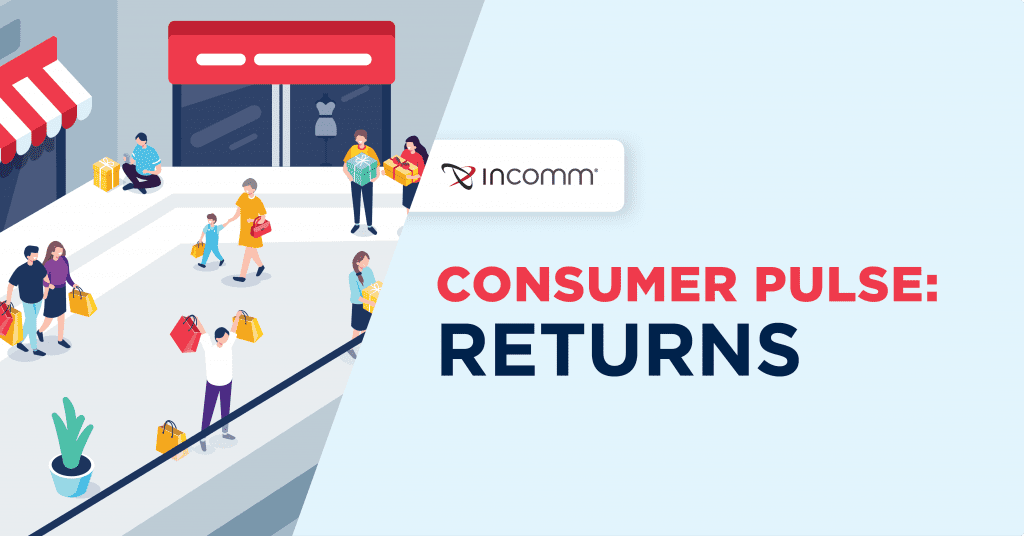Product returns have become a central factor in purchasing decisions as 96 percent of U.S. consumers say that merchant return policies influence their shopping decisions, according to a new report released today by leading payments technology company InComm. The report, titled “Consumer Pulse: Returns,” captured current consumer preferences, opinions, and concerns surrounding the returns ecosystem.
InComm’s Consumer Pulse also found that even one poor return experience for a consumer can cause a ripple effect for retailers. As reported, more than half (53 percent) of consumers who had a negative return experience in the past went on to share that experience with friends and family or online through social media and consumer websites.
“These findings emphasize that even after a positive shopping experience, the return experience is equally important when courting and retaining loyal customers,” said Karl Denzer, Senior Vice President of Emerging Technologies at InComm. “Merchants must create a return experience that is quick and reliable, without exposing their operations to a greater risk of return fraud.”
The Good, the Bad, and Data Privacy
Consumers also weighed in on what makes or breaks the returns experience. When returning an item in-store, 57 percent of consumers cited ease and speed of the return as the factors most impacting the quality of their experience. Furthermore, more than half of consumers (56 percent) expressed concern with presenting personal identification to a retailer when processing a return.
“Retailers will have to rethink whether they should require personal identification in their return policies, especially as states like California enact privacy laws that make it more difficult to do so,” said Denzer. “Rather than relying on monitoring customer information, merchants should consider leveraging anonymous product tracking technology within their point-of-sale systems. This approach would help ensure compliance with privacy laws, such as those in California, while also facilitating a faster, more reliable return experience that reduces fraud.”
Additional findings from the report include:
- 63 percent of consumers prefer to return an item at a brick-and-mortar store, while only 23 percent prefer to ship an item back.
- 77 percent of consumers prefer to receive a monetary refund when they make a return (cash, debit card, or credit card refund).
- Among consumers who were recently denied a return, the most common reasons for denial were not having the receipt or exceeding the retailer’s timeframe for a return.
InComm’s “Consumer Pulse: Returns” report drew on responses from more than 500 U.S. consumers who were asked about their experiences and attitudes towards retail return policies.
To view the complete report, click here.
